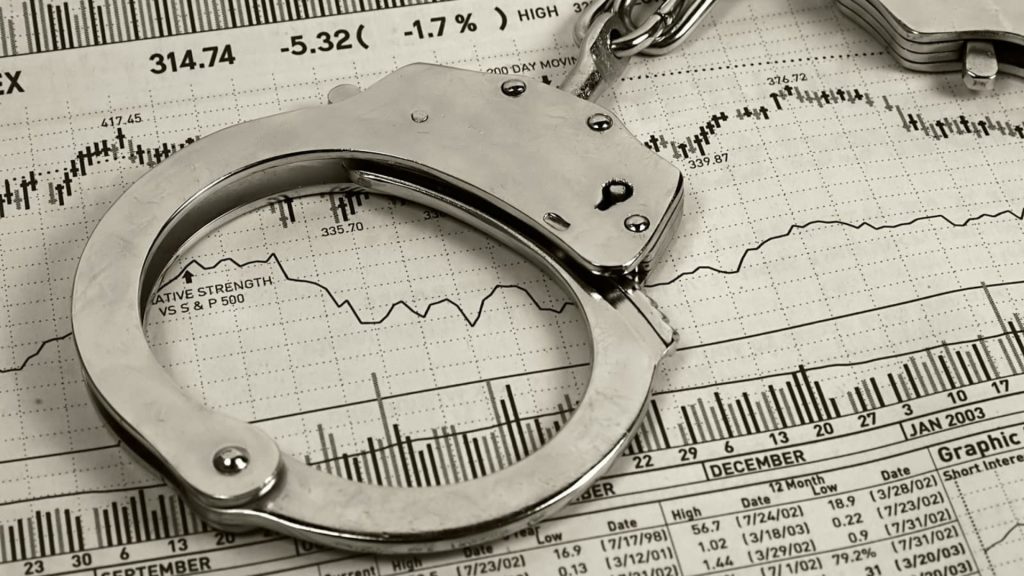Securities fraud types and definitions. Securities fraud, also known as stock or investment fraud, is a serious white-collar crime that takes many forms but primarily involves misrepresenting information that investors use to make decisions. A stockbroker, for example, could be the perpetrator of the fraud. It could also be a company, such as a brokerage, corporation, or investment bank. Individuals may commit this type of fraud on their own through schemes like insider trading.
Securities Fraud Types And Definitions
Securities fraud is a deceptive practice in the stock or commodities market that forces investors to make a sale or purchase decisions based on false information, usually resulting in losses, violating securities laws.
Securities fraud can also include theft from investors, stock manipulation, misstatements on a public company’s financial reports, and lying to corporate auditors. The term includes a range of other actions, including insider trading, front running, and other illegal acts on the trading floor of a stock or commodity exchange.
Understanding Securities Fraud
Securities fraud is defined by the Federal Bureau of Investigation (FBI) as criminal activity that includes high-yield investment fraud, Ponzi schemes, pyramid schemes, advanced fee schemes, foreign currency fraud, broker embezzlement, hedge-fund-related fraud, and late-day trading.1 In many cases, the fraudster attempts to deceive investors through misrepresentation and manipulate financial markets in some way.
Giving false information, withholding key information, giving bad advice, and offering or acting on inside information are all examples of this crime.
Types Of Securities Fraud
Securities fraud can take many different forms. In fact, there are numerous methods for deceiving investors with false information. For example, high-yield investment fraud may promise high rates of return while claiming there is little to no risk. Commodities, securities, real estate, and other types of investments are all possible. Advance fee schemes can take a more subtle approach, in which the fraudster persuades their victims to advance them small sums of money in exchange for higher returns.
Dummy Corporations
Fraudsters form dummy corporations to formulate an illusion of being a company with a similar name. Fraudsters then sell off these securities in the dummy corporation by misleading the investor into thinking that they are buying shares in the original corporation.
Internet Fraud
Criminals engross in pump-and-dump schemes, in which false information is circulated in chat rooms, forums, internet boards, and via email to produce a big price increase in thinly traded stocks or stocks of shell companies. Sometimes fraudsters circulate wrong information about a company to convince investors to sell their shares to plummet in the stock market.
When the price increases to a particular level, criminals sell off their holdings of those stocks, getting considerable profits before the stock price reaches its level. Buyers of these stocks who are not aware of this fraud become victims once the prices decrease.
Insider Trading
There are two types of insider trading. One is trading a corporation’s stock by corporate insiders like officers, key employees, directors, etc. This is legal, but there are some reporting requirements.
Second is the purchase or sale of a security on material non-public information. This type is illegal in most cases. In illegal insider trading, an insider trades based on material non-public information acquired during the performance of the insider’s duties.
Microcap Fraud
In microcap fraud, stocks of smaller companies are falsely promoted, then sold to the public. This type of fraud has been estimated to cost investors $1–3 billion per year. Microcap fraud involves pump-and-dumps schemes and scams on the Internet. Many micro caps trade for less than $5 a share.
Penny stock companies have low liquidity mostly. Investors may encounter difficulty selling their positions after the buying pressure has worn off and the manipulators have fled.
Boiler Rooms
Boiler rooms are stock brokerages that put great pressure on clients to trade using telesales in the chase of microcap fraud strategies. Some boiler rooms offer clients transactions deceptively, like those with a profitable confidential relationship with the brokerage. Some boiler rooms are not licensed but are tied agents of a brokerage house that may be licensed or not. Securities sold in boiler rooms comprise commodities and private placements.
The Pervasiveness Of Security Fraud
Securities fraud is getting more complicated as the industry becomes a more complex investment vehicle. Additionally, white-collar criminals are elevating the scope of their fraud and finding new markets, new investors, and banking secrecy havens to conceal unjust promotion.
Recovery of assets from the proceeds of securities fraud is a resource-intensive and expensive undertaking because of the fraudsters’ cleverness in hiding assets and money laundering, also the cleverness of many criminals to be good spenders. A victim of securities fraud is lucky enough to get back any money from the defrauder.
Characteristics Of Victims And Perpetrators
Although anybody can be a victim of fraud, people aged more than fifty years are more prone to be victimized both as direct and indirect purchases. Investors as well as creditors, taxing authorities, and employees, everybody can lose.
Potential perpetrators of securities fraud inside a publicly traded firm by using any dishonest official in the company who has entry to the financial reports that can be changed to overstate assets.
Final Thoughts
Securities fraud, also known as stock fraud or investment fraud, is a deceptive practice in the stock or commodities markets that leads to investors making purchase or sale decisions based on false information, often resulting in losses and in violation of securities laws. Securities fraud is a type of unethical or illegal activity that involves the use of securities or asset markets to profit at the expense of others. This is a serious crime that usually involves the financial world.
Ponzi schemes, pyramid schemes, and late-day trading are all examples of securities fraud. False information, pump-and-dump schemes, and trading on insider information are all examples of securities fraud.





